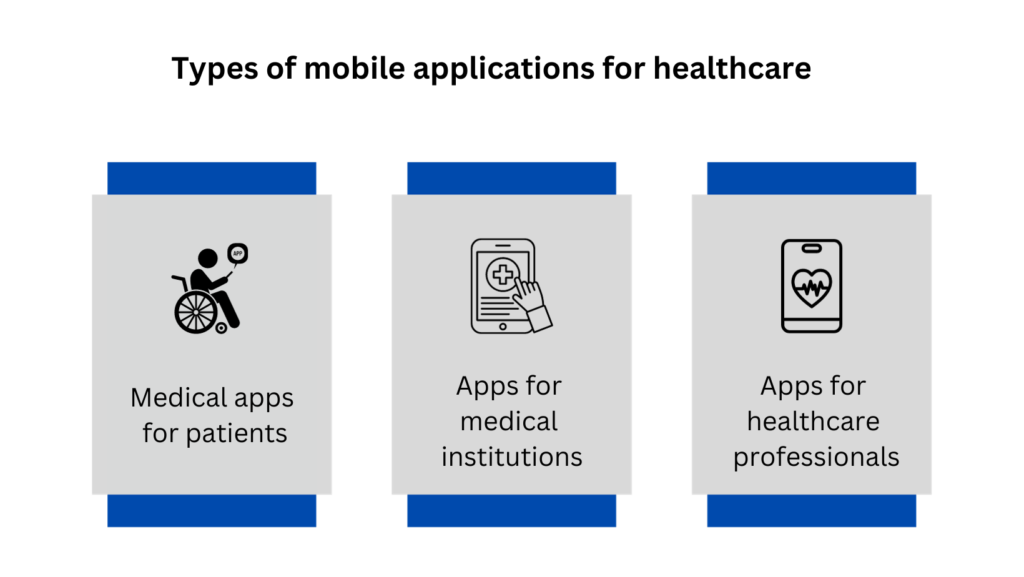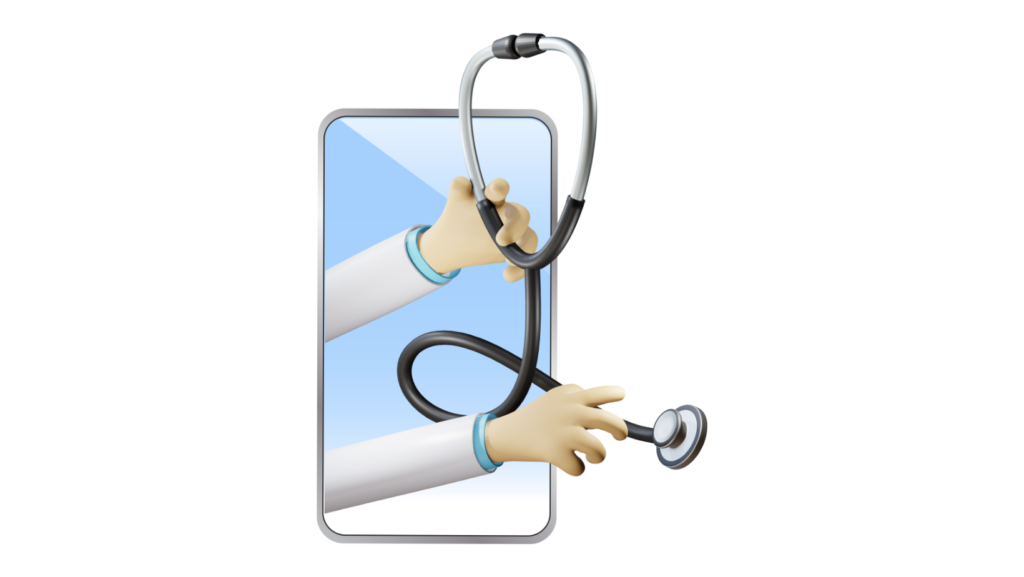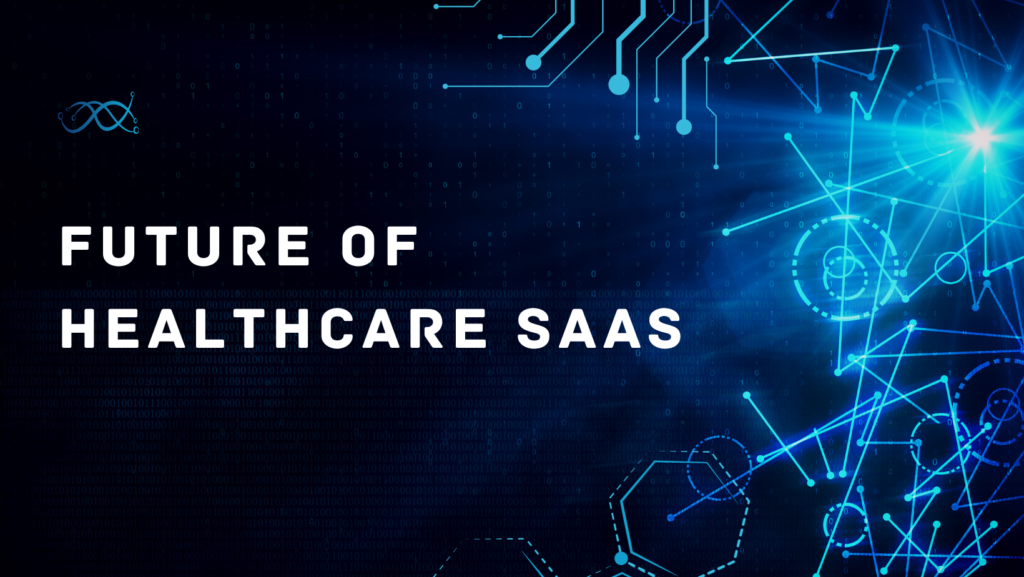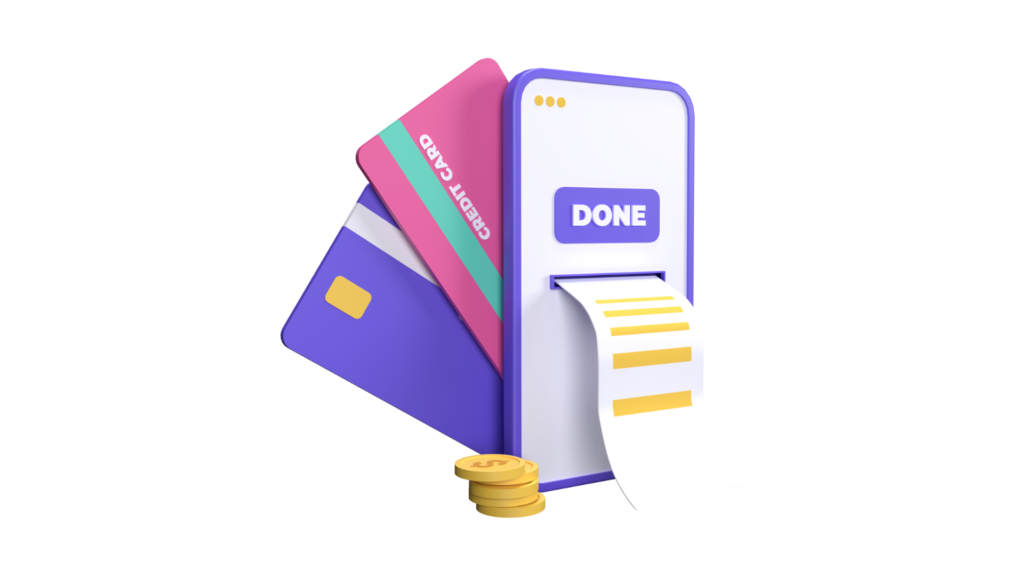Through the development of healthcare web applications, individuals can conveniently locate a doctor, schedule appointments, and access their medical test results from the convenience of their homes. In the ongoing global pandemic, virtual consultations with doctors and nutritionists have become accessible through video calls, providing a means for discussing health concerns online. Health-focused lifestyle apps and monitoring applications have further allowed people to maintain regular self-checks, contributing to a sense of ease and well-being. Undoubtedly, patient-oriented healthcare mobile apps have proven to be a valuable asset.
Mobile applications serve not only patients but also empower doctors to collect and store personal health data effortlessly. By utilizing healthcare mobile apps designed for patients, individuals can directly input their insurance cards and related information, thereby aiding healthcare professionals in minimizing errors associated with paperwork.
How can app development for the healthcare industry help doctors and medical professionals?
Undoubtedly, the development of mobile applications for the healthcare industry has significantly simplified the lives of medical professionals. Whether emergency response, health surveillance, and administration, health record maintenance, clinical documentation, treatment monitoring, or establishing regular direct communication with patients, every facet is comprehensively addressed through mobile app development.
Enhancing Healthcare Efficiency and Emergency Response Through Mobile Apps
As an illustration, healthcare establishments utilizing mobile app services can enhance their efficiency in handling emergency cases. When the app is activated, it promptly alerts doctors about the emergency, sending critical data directly to the doctor’s device. This not only saves valuable time but also allows the doctor to prepare for such situations in advance. Additionally, healthcare mobile apps facilitate the acceleration of documentation and treatment procedures for medical providers, proving to be a lifesaving factor in critical situations.
To grasp the role of health apps in promoting well-being, consider these insights. Research indicates that approximately 93% of doctors endorse healthcare applications as agents of positive change in patient health. Similarly, the study reveals that 80% of physicians actively utilize mobile technology in healthcare to administer patient care.
Types of mobile applications for healthcare
A multitude of healthcare apps saturates the market, with new ones continuously emerging and being developed. Based on their intended use, these healthcare apps can be categorized into those designed for health professionals, patients, and medical facilities.
Let’s briefly examine the most prevalent categories of healthcare applications:

Medical apps for patients
- Fitness and well-being apps
- Solutions for self-diagnosis
- Apps serving as reminder assistants
- Addiction recovery applications
- Mental health apps
- Women’s health tracking apps
- Apps for monitoring and tracking diets
Apps for medical institutions
- Scheduling and appointment solutions
- Billing
- Clinical assistance app with EHR and EMR access
- Inventory management
Apps for healthcare professionals
- Remote monitoring
- Appointment management solutions
- Telemedicine
How are medical mobile applications changing the healthcare space for the better?
Healthcare mobile apps have revolutionized our methods of working, collaborating, and communicating. In this segment, we’ll explore several key ways in which mobile applications in the medical field are reshaping the healthcare landscape. Let’s delve right in.
Explore the process of establishing a medical startup, identify challenges to steer clear of, and determine optimal markets for launching your healthcare products.

1. Monitoring patient’s health from a distance
Within the digital healthcare landscape, fitness bands linked to our smartphones through health apps have emerged to monitor various activities. These include tracking the number of steps taken during walking or running, monitoring sleep patterns, and managing dietary habits, among other factors. Furthermore, wearable technology has brought about a revolutionary shift in healthcare by assisting both patients and doctors in crucial tasks, offering real-time access to electronic health records, and delivering comprehensive patient histories.
2. Immediate access to healthcare
The era of physically visiting a doctor to schedule an appointment is long gone. Healthcare mobile app services in the medical sector have substituted traditional visits with digital alternatives. In this age of healthcare digitization and mobile app utilization, patients can effortlessly locate doctors within their proximity and instantly book appointments. Interactive mobile apps also enable patients to pose general health questions to doctors available 24/7, eliminating the necessity for appointment bookings.
3. Easy payments
One of the primary benefits of healthcare app development is the ease and efficiency it brings to bill payments. In the traditional approach, individuals had to endure long queues for hours to settle payments. However, mobile technology in healthcare introduces highly secure payment methods, enabling us to make instant payments for ourselves and our loved ones.
4. Home healthcare is easily accessible
At the forefront of transforming home healthcare services is technology. Real-time technology plays a pivotal role in determining medical equipment, medications, and other healthcare necessities within the industry.
Healthcare Apps: Inclusive Support for Diverse Needs
Healthcare mobile apps empower patients to opt for home healthcare services, extending benefits not only to the elderly but also to individuals with various conditions. This includes those with special needs or disabilities, individuals aging and requiring assistance for independent living, people recovering from medical setbacks, those dealing with chronic diseases, and so forth.
5. Accurate reports
Doctors, being human, are susceptible to errors in judgment, but the repercussions can be significantly more severe. The incorporation of machine learning and data analytics in healthcare has contributed to a reduction in instances of incorrect diagnoses. Leveraging machine accuracy and efficiency, patients can receive accurate reports.
6. Easy access to medical reports
Healthcare app features enable patients and doctors to access medical reports anytime, anywhere. In scenarios where a patient consults multiple healthcare professionals, this data can be retrieved to facilitate prompt medical decisions.
7. Choose your doctor
Selecting your physician is made easier with custom app development in healthcare. Patients now have access to all the information required to make an informed decision about their treatment. This includes details such as ratings, costs, expertise, and reviews from other patients’ experiences. With this wealth of information, individuals can make well-informed decisions about their healthcare providers.
How can Digiatto IT Services help in your mobile app development journey?
Digiatto IT Services, a prominent mobile app development company based in the USA, UK, and UAE, has crafted numerous distinctive and innovative mobile healthcare applications for our clients. Our goal is to assist medical organizations and providers in creating superior healthcare solutions that customers would not only embrace but also genuinely appreciate.
We’ve made great healthcare mobile apps and we know success comes from a user-friendly experience. If you’re thinking of launching a healthcare app or want to learn more about mobile health tech, get in touch with us anytime!
If you are considering reaching out to a healthcare mobile app development company, the time is now!



Pingback: Improving Electronic Health Records in 2024 - Health SaaS Pro
Pingback: Role of Cloud Computing in Healthcare Industry - Tech Startup
Pingback: Legacy Systems in Healthcare - HealthSaaSPro
Pingback: Business Guide to Healthcare Application Development in 2024 - HealthSaaSPro